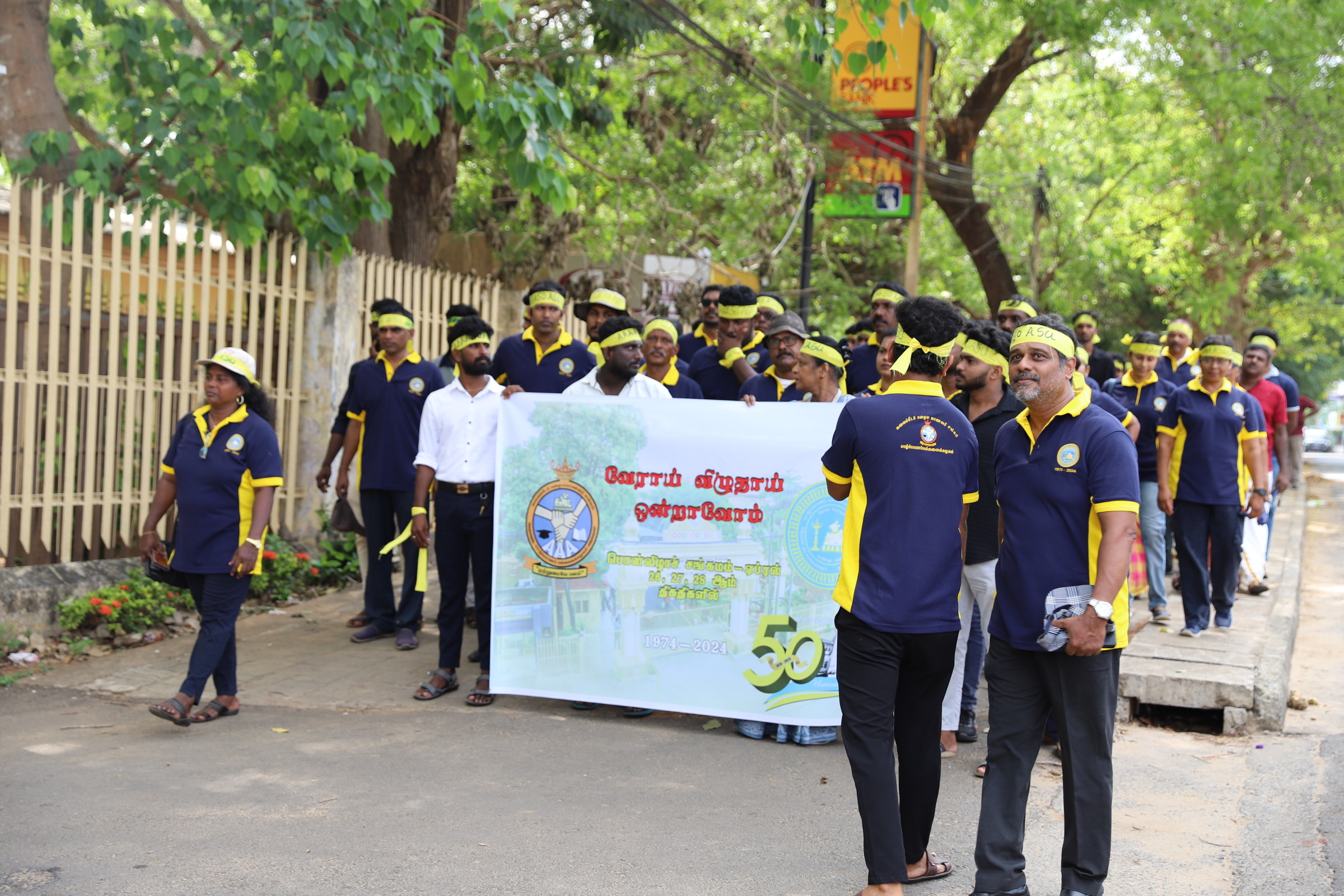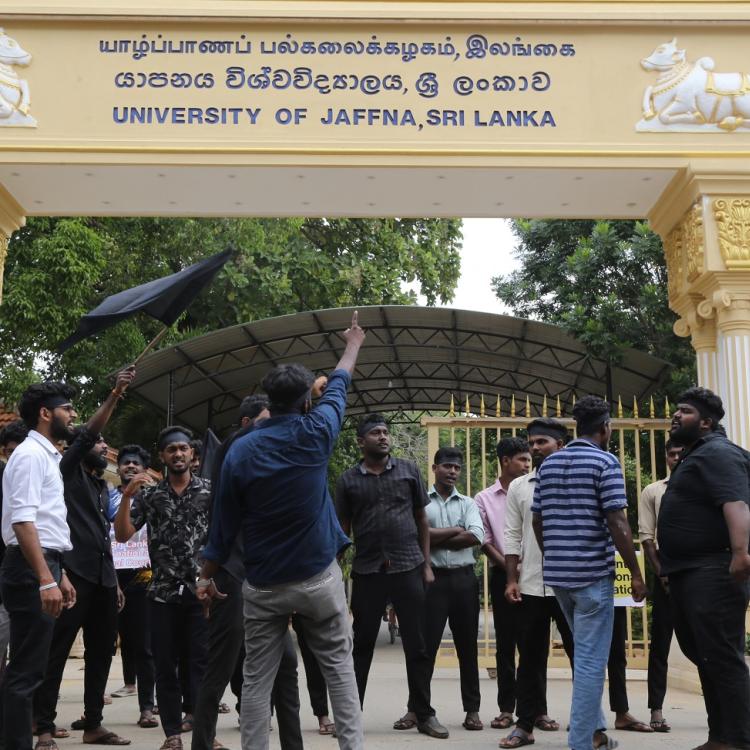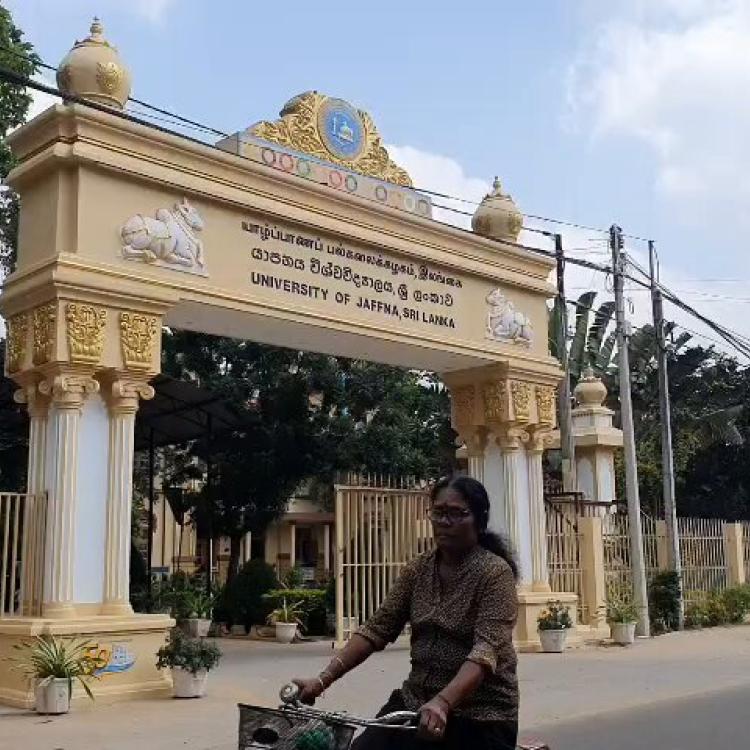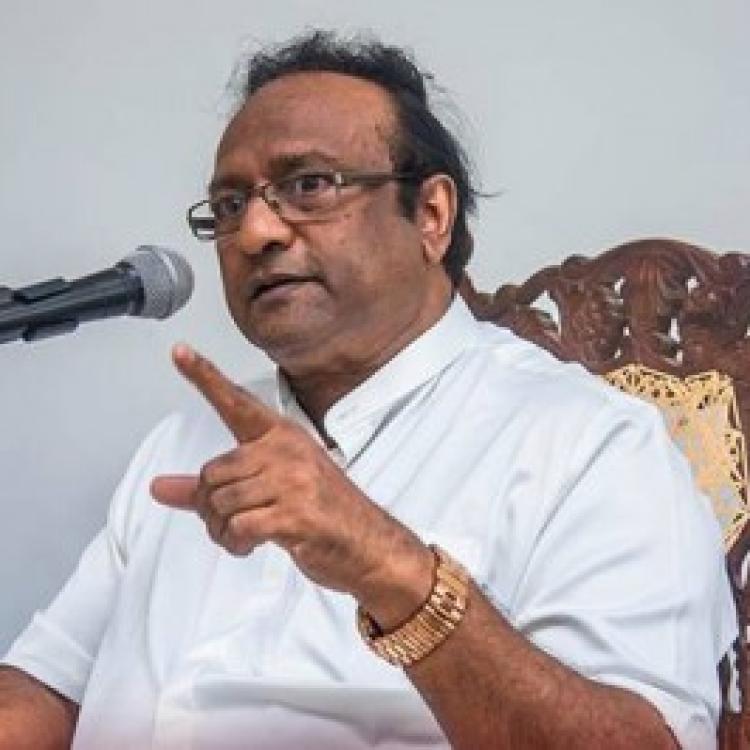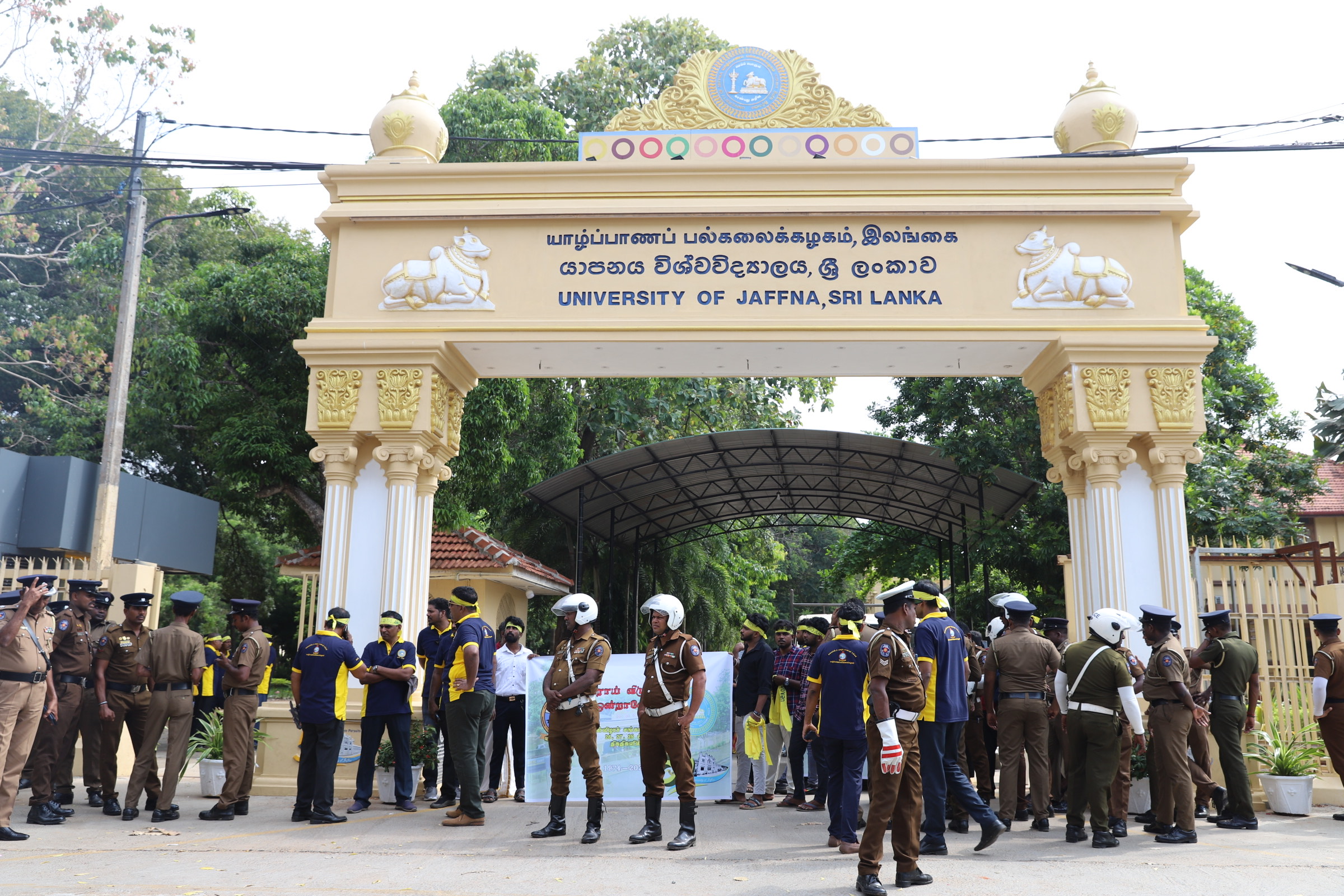
Sri Lankan police prohibited a planned procession to commemorate the 50th Golden Jubilee of the University of Jaffna, citing restrictions linked to the announcement of local government elections.
The decision forced the organisers to drastically scale back the event, which took place under a heavy security presence.
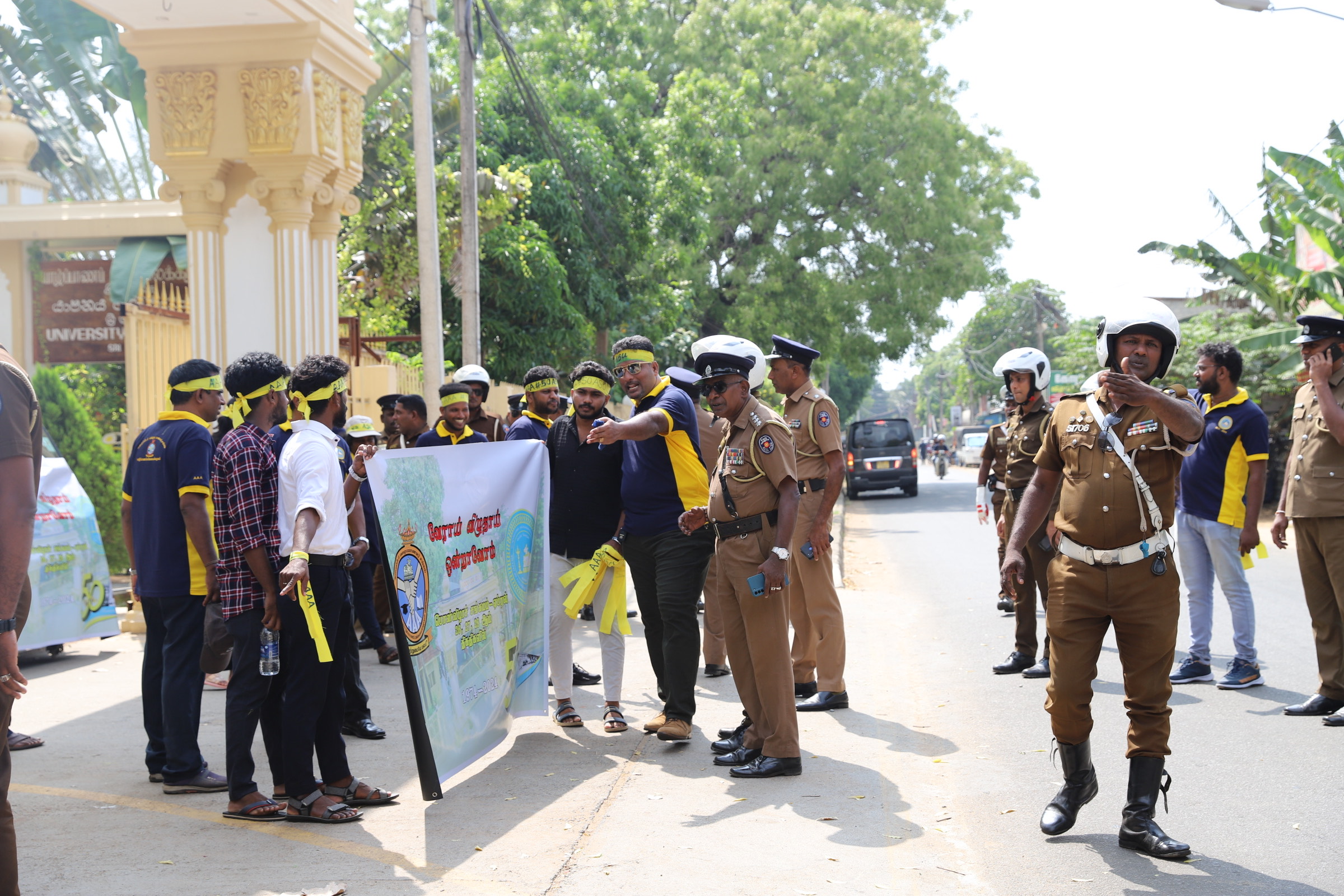
The commemorative procession was intended to mark a significant milestone for the University of Jaffna. However, Sri Lankan authorities blocked the procession from proceeding as planned.
Despite the ban, a reduced version of the event went ahead under tight surveillance, with police and intelligence personnel deployed in large numbers both within the university premises and in surrounding areas..
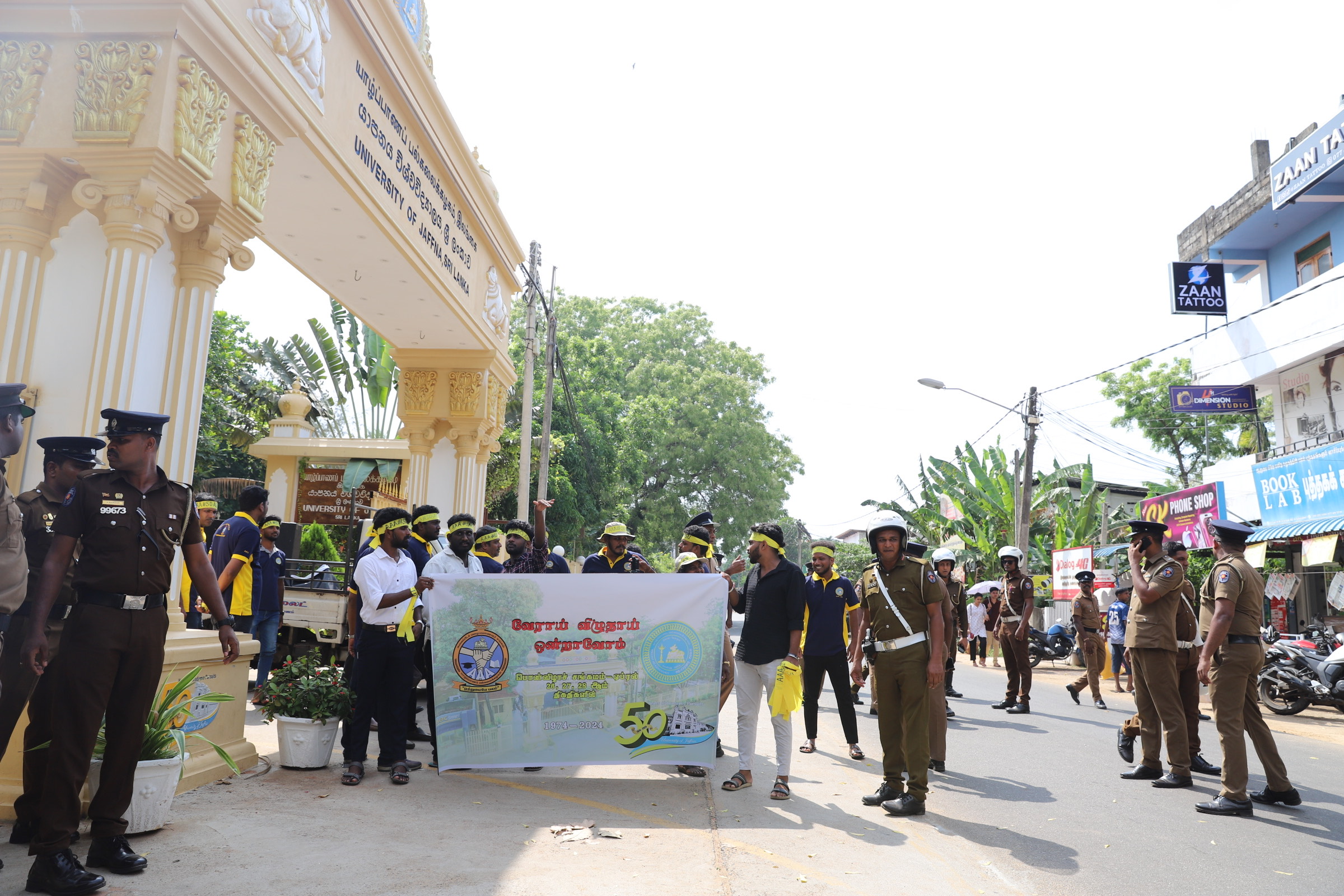
Authorities claimed that due to the upcoming local government elections, they could not grant permission for any public marches or demonstrations. Yet, this rationale appeared inconsistent when viewed against recent events in Colombo, where multiple marches were allowed to proceed without obstruction just last week.
This stark disparity has raised questions about the Sri Lankan government’s selective enforcement of public order regulations, especially in the Tamil homeland.
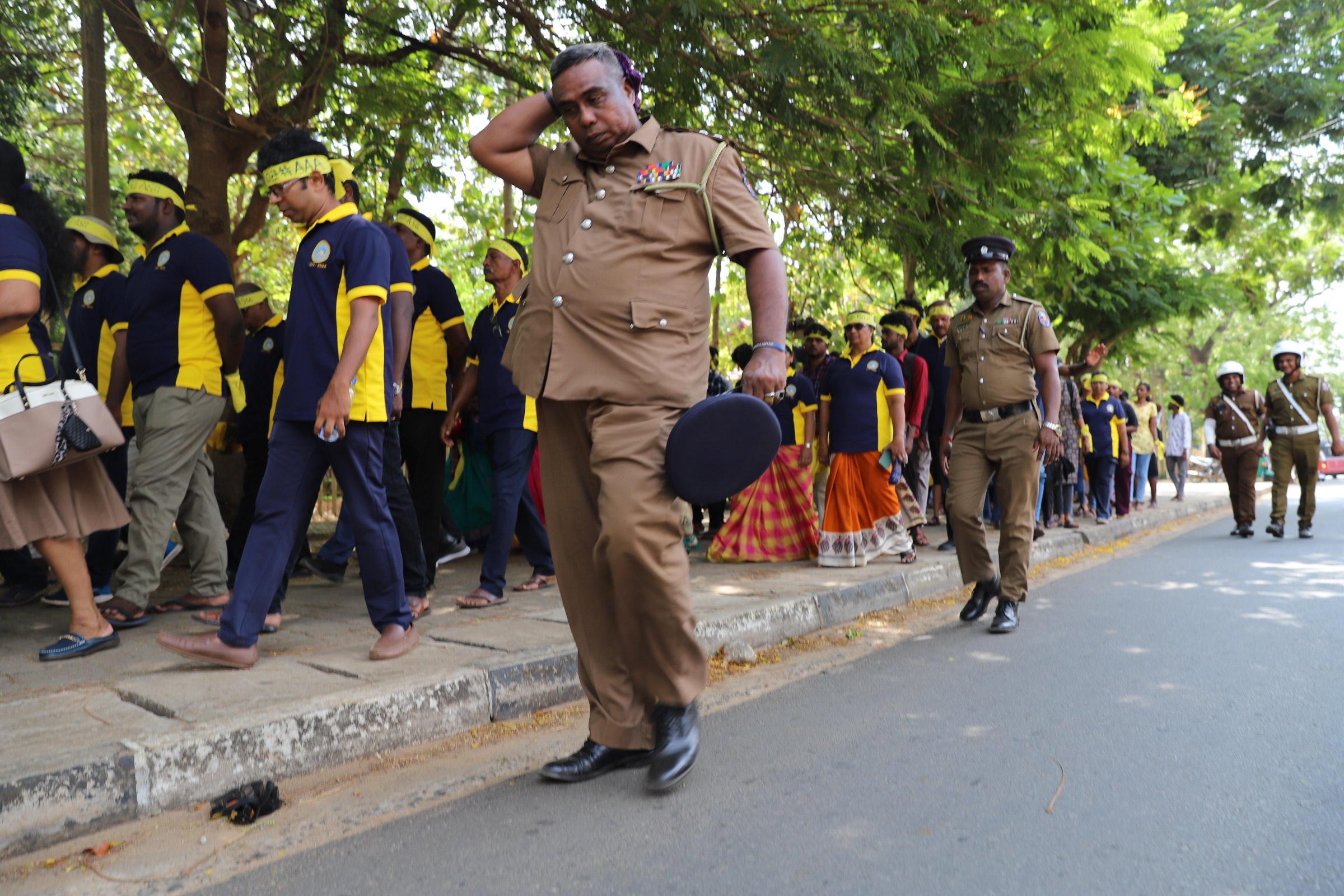
This is not the first time the university has found itself under tight surveillance during events of political or cultural significance. In recent years, security forces have repeatedly disrupted remembrance events and student gatherings, often under the pretext of maintaining public order.
